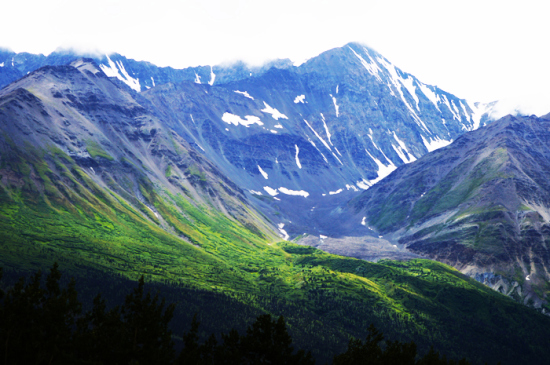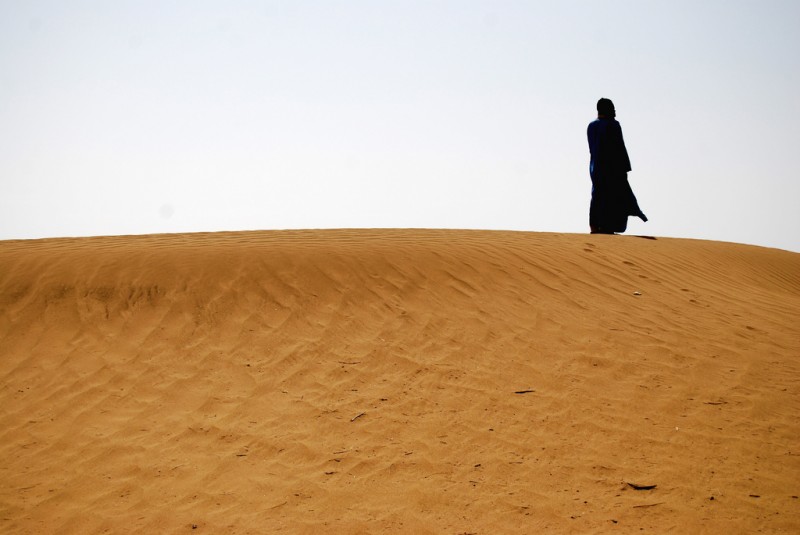What benefits do nomads actually bring to society? And do we really even need them?
Vagabondish is reader-supported. When you buy through links on our site, we may earn a small affiliate commission. Read our disclosure.
The answer is a resounding yes. As much as we need lawyers, doctors, and construction workers””we need nomads. Here are three more reasons (in addition to these and these) why:
Psychological Benefits
When I read Jennifer Pharr-Davis’ book Becoming Odyssa: Epic Adventures on the Appalachian Trail (aff), I was a fresh, new nomad struggling with the concept of inactivity. Well-trained in the art of office multi-tasking and accustomed to starting each day with a “to-do” list longer than my arm, I was now immersed in a world where it could take all day to do just one thing. Sometimes that thing was as basic as finding a place to sleep that night.
I was starting to work on my second book, and if I wasn’t pounding away at my keyboard every spare second, I would feel guilty. The guilt puzzled me since I had no deadline, no boss, and I was writing for fun, yet those societal values of ceaseless “productivity” still lingered in my brain.

Drinking in the views on the Alaska Highway © Vanessa Runs
In Becoming Odyssa, Pharr-Davis wrote about her own transition from constant movement to sitting still. She describes one incident where she was at a friend’s house, just sitting there. Her friend asked if she wanted a magazine? Did she want to watch TV? But Jennifer just wanted to sit there, as she often would in the evenings on the trail, and that concept made others uncomfortable.
These days I do nothing just as often as I do something. And shockingly, it has made me more productive.
These days I do nothing just as often as I do something. And shockingly, it has made me more productive. I have better ideas, and when I work I am faster, more eloquent because I have the time to organize my thoughts.
The biggest psychological stress plaguing our society is ”¦ well, stress. This goes hand in hand with the concept that we need to be doing something every minute of the day, and any minute resting is a minute wasted. Even when we do stop to rest, we are burdened by thoughts of what productive things we should be doing instead.
Rushing, multi-tasking, and stressing out are now things that exist only in my past, and that is something I learned from a nomad. In return, I seek to pass it on to others. It is a message that our society needs to make time to hear.
The Bottom Line
Nomads encourage us to slow down and de-stress.

Surviving Tibet © McKay Savage
Survival Benefits
Residing in what is now Lebanon, the Phoenicians enjoyed a rich, civilized culture based on lumber exportation in 300 B.C. They grew to obtain great wealth due to their enormous and beautiful cedar trees, whose infamy is Biblically referred to as “the cedars of Lebanon.” Their land was plentiful, their people strong, and their soil rich.
The Phoenicians were self-sufficient and prosperous, but as they started to clear-cut their cedar trees over time, the quality of their soil decreased. It became harder to grow food and their people grew hungry.
The leaders of the time decided to go to war to expand their borders and rose up against Alexander the Great. Alexander squashed them like bugs and conquered their entire civilization. Historically, nations who could not feed themselves would never survive.
“Food sovereignty” is the term used to describe a nation’s ability to feed itself – a skill we are rapidly losing in our society. Socialized with the idea that if we need something we must buy it, we commit Phoenician sins at an alarming frequency.
We need people who know how to be self-sufficient. Through programs like WWOOF, many full-time nomads are learning to work organic farms in exchange for room and board. Nomads are also experts at acquiring the things they need without using money. They barter and trade their services, goods, or skills. No matter how industrialized we become, these ancient survival skills are always useful.
The Bottom Line
Nomads bring us back to our roots of self-sufficiency, trade and simple survival.

Nomad Alone in the Sahara Desert, Morocco © Celso Flores
Irrational Benefits
Philosophically, does the constant supply of information steal our ability to imagine or replace our dreams of achieving? After all, if it is being done somewhere by someone, and we can participate virtually, then why bother leaving the house?
This is the question Ben Saunders attempted to answer in his 2012 TED talk. Saunders is a polar explorer and the youngest person to ever ski solo to the North Pole. He ponders his purpose of nomadic travel:
“Nothing will come of it,” he wisely admits. “We shall not bring back a single bit of gold or silver, and not a gem, nor any coal or iron. We shall not find a single foot of earth that can be planted with crops to raise food. So it is no use.
If you cannot understand that there is something in man which responds to the challenge of this mountain and goes out to meet it, that the struggle is the struggle of life itself upward and forever upward, then you won’t see why we go.
What we get from this adventure is just sheer joy, and joy, after all, is the end of life. We don’t live to eat and make money. We eat and make money to be able to enjoy life. That is what life means, and that is what life is for.”
Nomads understand this to be true first-hand. In a society that demands a purpose and a rational explanation for any expenditure of energy, nomads represent travel, movement and adventure as worthwhile pursuits unto themselves. Theirs are the adventures that inspire books and TED talks. This is where original ideas are born and lives are changed. There is no other job or career on earth that operates on this principle: that the destination is senseless but the journey is everything.
The benefits of living vicariously through your local nomad are also abundant. Not all of us need to ski to the North Pole, but some of us still have irrational dreams that we’ve muted with society’s expectations. Sometimes it takes a nomad to come along and uncover them. If we pursue those ambitions, our own adventures will inspire others, and so the circle continues.
To move, to breathe, to fly, to float,
To gain all while you give,
To roam the roads of lands remote:
To travel is to live.
– Hans Christian Andersen
The Bottom Line
Nomads feed our inherent sense of curiosity, wonder, and adventure; they give us permission to follow our own “senseless” dreams.
What Does It All Mean?
While nomads are not the only people on earth who benefit society in these ways, they are important, underestimated and rare contributors. Just as some of us aspire to bring home a steady paycheck and live in comfortable homes (society needs that too), there are nomadic spirits chained to their cubicles because they are convinced that travel would be selfish.
It is not selfish. Nomadic travel can never be selfish, because for every benefit you receive, you give away everything””your entire heart, your mind, strength, and life””to forever change the people you meet and tenderly touch the places you visit.


